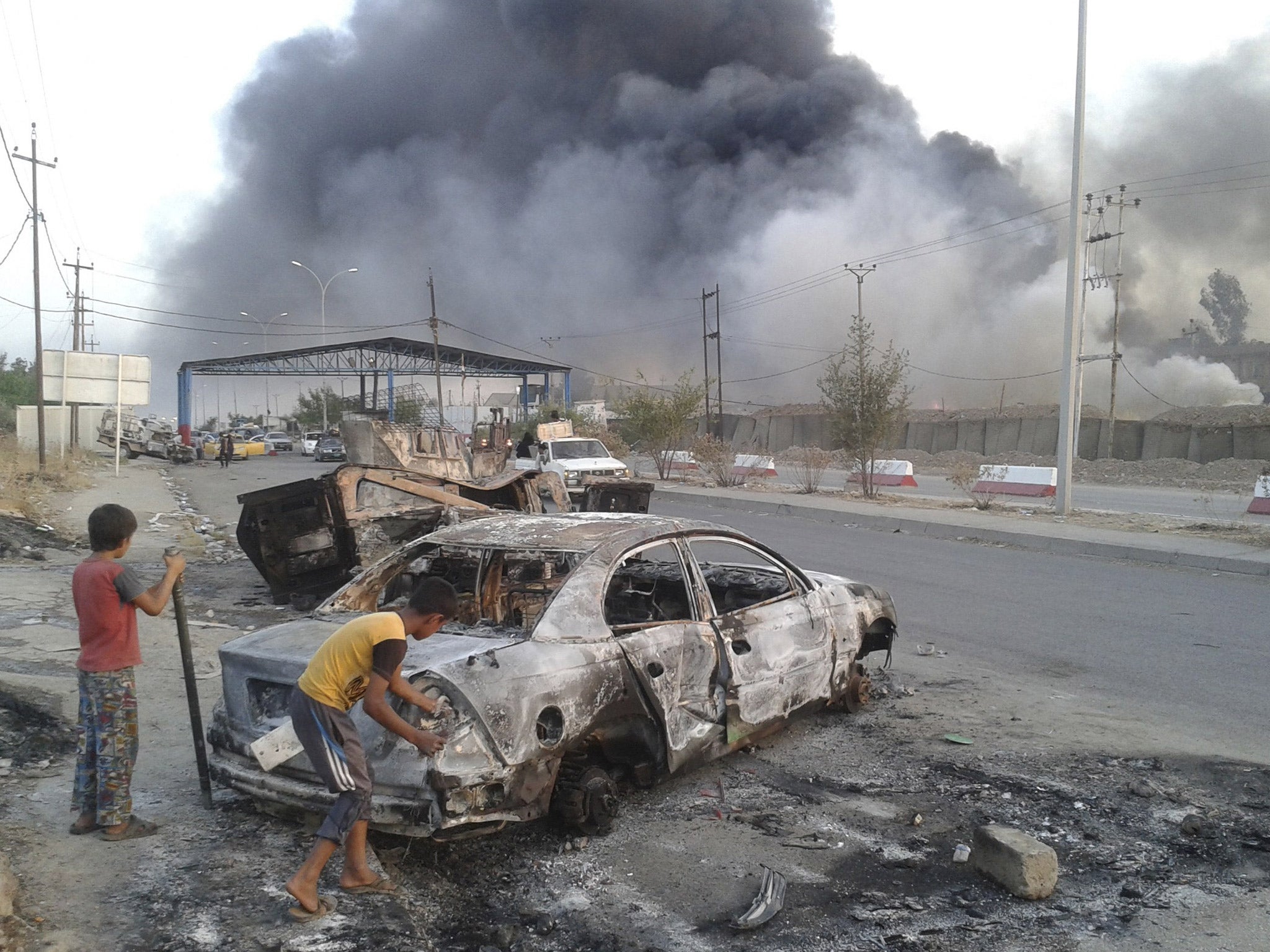Iraq crisis: Kurds say they could have saved Mosul

Your support helps us to tell the story
From reproductive rights to climate change to Big Tech, The Independent is on the ground when the story is developing. Whether it's investigating the financials of Elon Musk's pro-Trump PAC or producing our latest documentary, 'The A Word', which shines a light on the American women fighting for reproductive rights, we know how important it is to parse out the facts from the messaging.
At such a critical moment in US history, we need reporters on the ground. Your donation allows us to keep sending journalists to speak to both sides of the story.
The Independent is trusted by Americans across the entire political spectrum. And unlike many other quality news outlets, we choose not to lock Americans out of our reporting and analysis with paywalls. We believe quality journalism should be available to everyone, paid for by those who can afford it.
Your support makes all the difference.Possibly the only available professional fighting forces on hand to reverse the Islamist takeover of Mosul are the Kurdish Peshmerga units that serve as the army of the country’s Kurdistan autonomous region.
The Peshmerga – which means “those who face death” – intervened in the past to help the Iraqi army protect Mosul from insurgents. This time, however, Kurdish leaders are embroiled in a bitter dispute with the Baghdad government and seem in no mood to help extract Prime Minister Nouri al-Maliki from a crisis they believe to be largely of his own making.
Kurdish officials say they are focusing on preventing the violence spilling into Kurdish areas. The Peshmerga army has ensured that Kurdistan has remained free from the renewal of communal violence that has ensnared the rest of Iraq.
The Kurdish region is booming economically and provides a refuge for hundreds of thousands of civilians fleeing the civil war in neighbouring Syria, as well as for those escaping the violence in the rest of Iraq.
Relations between the Kurdish leadership in Erbil and the Maliki government in Baghdad have reached almost breaking point in recent months, mainly over the issue of oil exports from the Kurdish-run zone.
The Kurdistan Regional Government shipped its first consignment of oil through a new pipeline to Turkey last month. The move came after Baghdad cut off payment of Kurdistan’s share of the national budget as part of the dispute. Baghdad says oil can only be sold through Iraq’s national oil agency.
Two tanker-loads of Kurdish crude have since left the Turkish port of Ceyhan but have yet to find buyers amid threats from Baghdad that it plans to take its dispute with Erbil to the United Nations.
Kurdish leaders insist the Maliki government has failed to recognise Kurdish rights. An additional irritation to Erbil is that Baghdad has failed to pay any contribution towards funding the Peshmerga units which it may now need.Masoud Barzani, the Kurdistan Region president, has accused Mr Maliki of taking Iraq towards totalitarianism. “The authorities in Baghdad want to control everything,” he said. “It is not acceptable to us.”
As the insurgent forces of Isis continued their advances, Iraqi Foreign Minister Hoshyar Zebari, a Kurd, said the Baghdad government would work with the Kurdish regional authorities to defeat the Islamists. On the ground, meanwhile, thousands of Peshmerga were deployed to the Kurdish town of Tuz Khurmatu, south of the disputed oil city of Kirkuk. The area lies outside the autonomous region but is claimed by the Kurds – another bone of contention with Baghdad.
Harvey Morris is a former Middle-East Editor for ‘The Independent’
Join our commenting forum
Join thought-provoking conversations, follow other Independent readers and see their replies
Comments